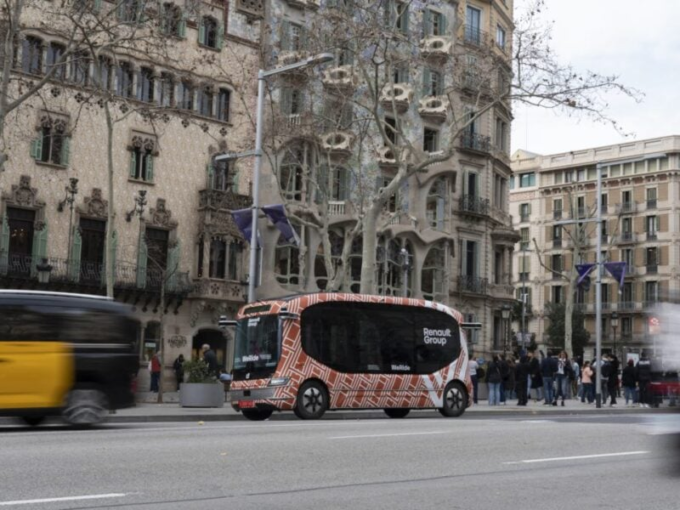Renault has been operating several driverless shuttles across Europe as part of its autonomous vehicle strategy.
Shuttles are operating in Barcelona in Spain, Valence in France and Zurich in Switzerland using technology from Chinese operator WeRide. Several more will be announced shortly, says the company.
The company plans to offer an electric miniBus platform by 2030, capable of integrating automation systems from specialized partners.
This week, two autonomous electric miniBuses have been running on a 2.2-kilometre open road loop in the heart of the streets of Barcelona. By developing autonomous shuttles in a dense and complex urban environment, the trial demonstrates the maturity of new technologies for automated public transport services.
Renault sees autonomous mobility as a means of making cities more liveable, transport more accessible and mobility more efficient and more sustainable.
- €1bn for driverless cars in Europe’s €50bn automotive plan
- Single seater EV demonstrator video
- Autonomous shuttle in Paris
After trials this month, a commercial service of level 4 automated shuttles is targeted from July in Valance, France.
French private public transport operator beti, insurer Macif, WeRide and Renault Group are deploying the first automated mobility network to connect a TGV railway station to a local 162-hectare business park.
A trial by WeRide at Zurich Airport since January 2025 aims to make it easier for employees to travel between terminals. This demonstrates the ability of autonomous technologies to operate in complex environments and meet the high requirements of safety and reliability such as that of an airport.
For individual vehicles, in the current market conditions, the Group is focusing onL2 and L2+ market-leading Advanced Driver Assistance Systems (ADAS) system with Adaptive Cruise Control and Lane Keeping Systems but is looing to offer more sophisticated systems when appropriate. BMW and Mercedes are already shipping Level 3 vehicles in the US and Europe.
“However, Renault Group has made agility a priority, and remains attentive to developments, particularly in terms of cost and regulations, and will be able to offer solutions for the individual vehicle with higher levels of autonomy when market conditions are right,” it said.
For public transportation the company is offering L4 autonomous vehicles in the short term, capable of managing driving situations on their own with remote supervision. Renault estimates that several thousand autonomous electric miniBuses will be needed in the coming decade.
www.renaultgroup.com; www.weride.com



Leave a comment